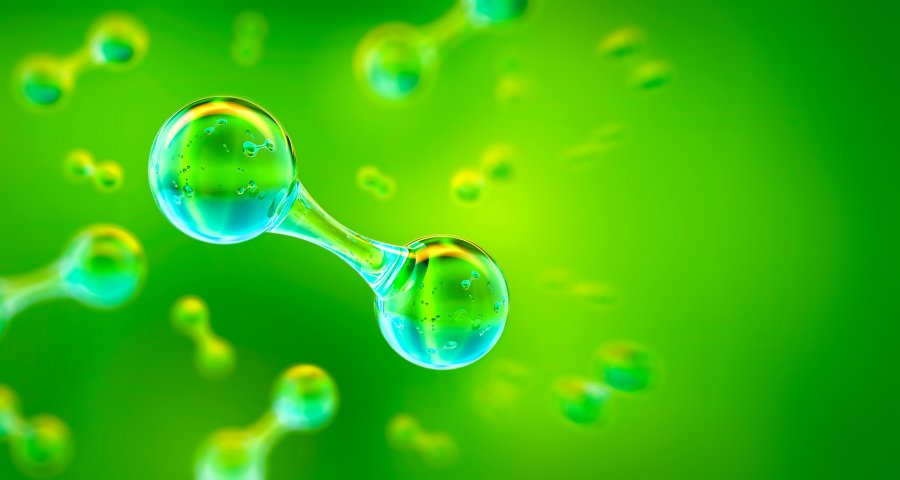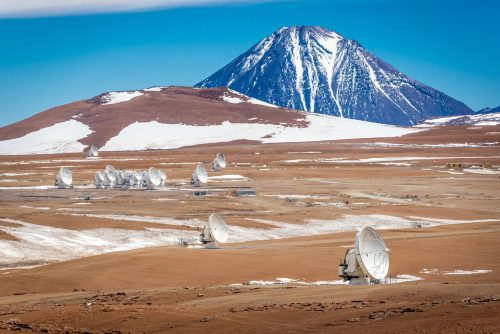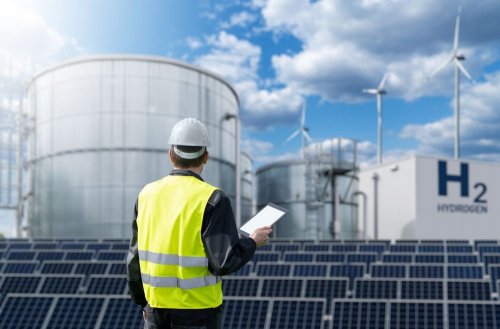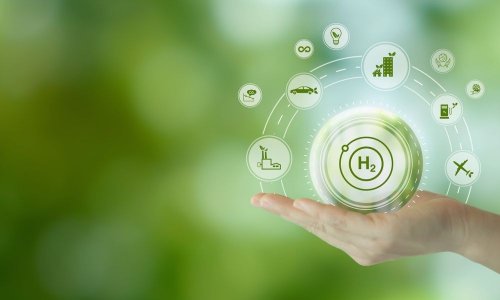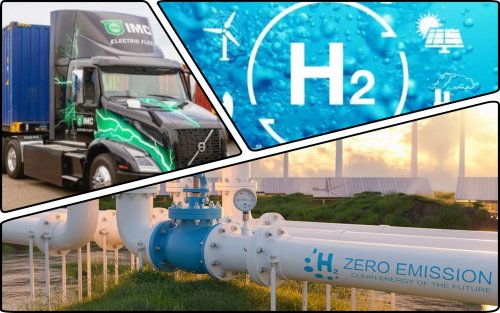In Australia, scientists from the University of Melbourne have developed a technology for the production of high-purity hydrogen (99%) from air with a minimum humidity of 4%.
This could open up the possibility of hydrogen production in semi-arid regions that have the highest potential for solar and wind energy, reports IEEE Spectrum.
Prototype tests have shown that the direct air electrolyser can produce almost 750 liters of hydrogen, on average, per square meter of the electrolyser. The efficiency of converting solar energy into hydrogen is more than 15%.
Gang Kevin Lee, a professor of chemical engineering at the University of Melbourne, noted that there are nearly 13 trillion tons of water in the air at any given time worldwide, and even in dry environments such as the vast Sahel region of Africa, the average relative humidity is 20 %.
The technology is based on placing a foam sponge soaked in a water-absorbing electrolyte liquid between two electrodes.
"The water released by the electrolyte is spontaneously transported to the electrodes by capillary force and converted to hydrogen at the cathode and oxygen at the anode," Lee explains. "The whole process is passive, with no moving parts or mechanics involved."
The module can be powered by solar panels or a small wind turbine.
Scientists plan to create larger electrolyzers with an electrode area of 10 m2 in 2023, because the area of the prototype is now only a few square centimeters. In addition, they will work on improving the electrolyte to improve energy efficiency and performance.
“Scaling the device should not affect efficiency and productivity. But the main challenge the team faces is finding the right materials for the electrolyser, – Lee said. – How can we do it cheaper and better?"
Earlier, EcoPolitic wrote, that in Australia, the Star Scientific startup has developed the HERO technology, which turns hydrogen and oxygen into superheated steam with a temperature of 700ºC, capable of driving a power plant turbine.
As EcoPolitic previously reported , in the USA the company Utility Global invented the first technological platform in the industry of non-electrical electrolysis for the conversion of inexpensive hydrogen No Zero.

